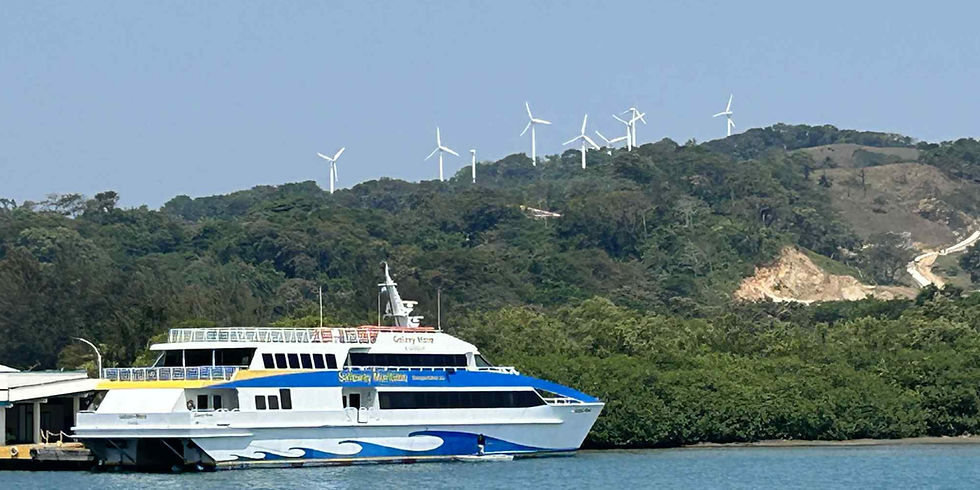Leading With Impact: Lessons in Leadership, Resonance, Activation, Cultivation, and Presence
- vwimberly

- Jul 20, 2025
- 3 min read
Leadership is more than a role; it’s a response. A response to uncertainty, to the needs of others, and to a call that often shows up before we feel ready.
In our recent podcast episode, I had the privilege of sitting down with three incredible
women; Trisha Montalvo, Susan Ramos, and Tamara Klaehn. The five essential leadership dimensions include leadership, resonance, activation, cultivation and presence. The conversation revealed authentic unscripted dialogue which included personal stories and practical insights and deep reflection.
Leadership: Influence Over Perfection
Leadership requires more than possessing all the correct answers. My experience of managing fast-food staff and co-owning a trucking company has shown me that people follow purpose rather than perfection.
Leadership emerges when others start to seek your guidance for direction. Leadership requires value communication and pressure response while maintaining transparency and empathy and vision.
During the podcast I revealed that my first leadership position focused primarily on task
management. The path to becoming a true leader required both time and mentorship and multiple mistakes to learn that leadership means developing people rather than achieving.
Resonance: Connection That Inspires
Leadership depends on emotional currents which we call resonance. Trisha described it as
the “fit” between a leader’s message and a follower’s readiness—and that struck a chord with all of us.
The connection occurs when communication becomes personal and empathetic and values-driven. The power of resonance transforms ordinary messages into unforgettable experiences. People experience emotional engagement through resonance which allows them to feel instead of simply think about the message.
Reflection: When was the last time your leadership truly resonated with someone? What made that moment stick?
Activation: Turning Vision into Movement
Activation is where leadership becomes action. It’s when your values and vision start to move
through people and projects.
But activation without connection creates resistance. As Susan reminded us, if you don’t secure buy-in or check for understanding, even your best ideas can fall flat.
In my own leadership, I’ve learned to lead with relationships before rolling out change.
Activation happens best when people feel invited—not imposed upon.
Reminder: Activation without trust breeds resistance. Start with connection.
Cultivation: Growing People, Not Just Projects
Cultivation is the long game. It’s about intentionally designing leadership structures that build people, not just outcomes.
Trisha emphasized that cultivation happens when growth is baked into culture. Tamara added that it is about maintaining systems that support ongoing development—not one-time mentorship moments.
In my work, I’ve seen how investing in people’s growth results in stronger teams and better long-term impact. Real leadership isn’t just about pushing forward—it’s about pulling others up with you.
Ask Yourself: How are you intentionally cultivating growth in those around you?
Presence: The Art of Showing Up Intentionally
Tamara described presence as both competence (having the skill) and efficacy (knowing when and how to use it). Presence is what makes people trust you in moments that matter.
She outlined five elements that shape a leader’s presence:
Trade-specific expertise
Analytical thinking
Personal communication
Organizational awareness
Social influence
To me, presence means leading with clarity even when you don’t have certainty. It’s staying
grounded, accountable, and real.
Insight: Leadership presence isn’t about taking up space—it’s about making space for purpose, people, and progress.
Conclusion: Leadership Is a Living Practice
This podcast wasn’t just a conversation—it was a collective reflection. Each of us brought our
voices, stories, and questions to the table. And what we found were five powerful dimensions that every leader, regardless of role or title, can lean into.
To Trisha, Susan, and Tamara, thank you for sharing your truths. And to you, the reader: If you’re figuring leadership out as you go, you’re not alone. The most
impactful leaders I know are those who stay open, reflective, and committed to learning.
Call to Action
Have you experienced these five dimensions in your own leadership journey?
Drop a comment below and share your story.
Share this post with someone navigating their own path in leadership.







Comments